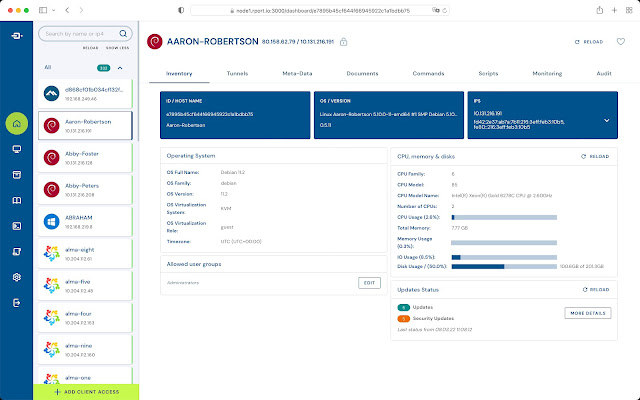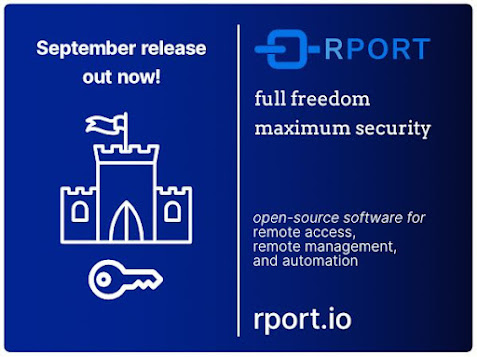CloudRadar releases cloud installer for its free remote management solution
Without any configuration effort, users can now turn any virtual machine in the cloud into a fully-fledged RPort server in just a few minutes. RPort is free of charge. Only the cost of the cloud VM is incurred (3-5 €/month).
The German technology company cloudradar GmbH has released a cloud installer for its RPort software. This is compatible with all common cloud providers. This includes European clouds such as Hetzner and Scaleway. In less than five minutes, users can install their own server for secure remote maintenance. Configuration via the command line is not necessary.
It is based on RPort - an all-in-one remote management suite for heterogeneous environments. RPort addresses three basic needs of a system administrator: fast and secure remote access from anywhere, script execution from a central dashboard, and automation of recurring tasks.
RPort lets users manage and automate their Windows and Linux devices - desktops, servers, and any device from an intuitive, browser-based dashboard. It provides a comprehensive view of the entire IT inventory. Users can securely log on to remote systems. Firewall changes or a VPN are not required.
RPort is designed for maximum security. Spying on credentials is technically impossible. Users always have full control over their data.
RPort makes it easy for system administrators to get started with automation. Running commands on remote machines from a central dashboard is the first step. On a single server or on a group of servers, sequentially or in parallel. Even complex tasks can be automated through scripts. A library allows reuse and sharing of automation recipes with colleagues. The complete deployment of desktop PCs or servers including all applications and their configuration can be automated.
The underlying reverse tunneling technology also makes remote access highly secure. Users connect to any remote system via an encrypted tunnel using Remote Desktop, SSH, VNC, HTTP, or any TCP-based protocol. Ports are not opened. Port forwarding or VPN is not required.
Users can easily install their RPort server, on-premises or on a small cloud VM starting at €3 per month. Since the user always owns their RPort instances, no data is shared with a cloud provider. The remote client is lightweight and available for any operating system.
RPort is released under the MIT open source license and is, therefore, free to use. Server and client are static binaries without dependencies, which makes installation easy even for inexperienced users.
More information and access to the free download at https://oss.rport.io. RPort plans to offer a paid SaaS option - but the developers' vision is to encourage administrators to run their own self-hosted RPort servers.





Comments
Post a Comment